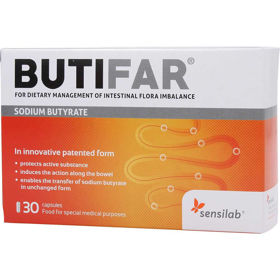Vprašanje stranke:
Ali določena dieta lahko pomaga preprečiti nastanek oz. pojav žolčnih kamnov ali pa se jih znebiti? Vprašanje anonimne stranke
Odgovor farmacevta:
Določena dieta lahko pomaga preprečiti nastanek žolčnih kamnov, vendar ni zagotovljeno, da se jih boste lahko znebili le s spremembo prehrane. Uravnotežena prehrana, bogata z vlakninami in z nizko vsebnostjo nasičenih maščob ter trans maščob, lahko zmanjšuje tveganje za nastanek žolčnih kamnov. Uživanje polnozrnatih izdelkov, sadja, zelenjave in zdravih maščob, kot so oljčno olje in oreščki, je koristno.
Redno uživanje obrokov in izogibanje preskakovanju obrokov pomaga ohranjati stabilno raven žolča v žolčniku, kar lahko zmanjša tveganje za tvorbo kamnov. Pitje zadostne količine vode pomaga pri prebavi in ohranjanju zdravega pretoka žolča. Vzdrževanje zdrave telesne teže je prav tako pomembno, saj debelost povečuje tveganje za nastanek žolčnih kamnov. Vendar, če so kamni že prisotni, prehranske spremembe morda ne bodo dovolj za njihovo odstranitev, zato je pomembno posvetovanje z zdravnikom za ustrezno zdravljenje.
Kakšna je dieta proti žolčnim kamnom?
Dieta proti žolčnim kamnom je usmerjena k zmanjšanju tveganja za njihov nastanek in k lajšanju simptomov, če so kamni že prisotni. Osredotoča se na uživanje zdrave, uravnotežene prehrane, ki je bogata z vlakninami in z nizko vsebnostjo maščob.
Tukaj so ključne smernice za takšno dieto:
- Povečajte vnos vlaknin: uživanje hrane, bogate z vlakninami, pomaga izboljšati prebavo in zmanjšati tveganje za nastanek žolčnih kamnov. Viri vlaknin vključujejo polnozrnate izdelke (kot so ovseni kosmiči, polnozrnati kruh in rjavi riž), sadje (kot so jabolka, jagode in agrumi) in zelenjavo (kot so brokoli, špinača in korenje).
- Zmanjšajte vnos maščob: omejite uživanje nasičenih maščob in trans maščob, ki jih najdemo v ocvrti hrani, mastnem mesu, maslu in predelanih živilih. Namesto tega se odločite za zdrave maščobe, kot so tiste, ki jih najdemo v oljčnem olju, avokadu, oreščkih in ribah, bogatih z omega-3 maščobnimi kislinami (kot so losos, skuša in sardine).
- Uživajte manj sladkorja in rafiniranih ogljikovih hidratov: izogibajte se sladkorjem in rafiniranim ogljikovim hidratom, kot so sladkarije, pecivo, beli kruh in sladke pijače. Ti lahko povečajo tveganje za nastanek žolčnih kamnov.
- Vzdržujte zdravo telesno težo: debelost povečuje tveganje za nastanek žolčnih kamnov. Če imate prekomerno telesno težo, poskusite shujšati postopoma in zdravo, saj lahko hitro hujšanje poveča tveganje za nastanek žolčnih kamnov.
- Redni obroki: redno uživanje obrokov pomaga ohranjati stabilno raven žolča v žolčniku. Izogibajte se preskakovanju obrokov, saj lahko to povzroči zgoščevanje žolča in povečanje tveganja za nastanek kamnov.
- Pijte dovolj tekočine: pitje zadostne količine vode pomaga pri prebavi in ohranjanju zdravega pretoka žolča. Poskusite spiti vsaj osem kozarcev vode na dan.
- Uživanje antioksidantov: hrana, bogata z antioksidanti, kot so sadje in zelenjava, lahko pomaga zmanjšati vnetje in tveganje za nastanek žolčnih kamnov.
Ali se žolčnih kamnov lahko znebimo s pitjem dovolj tekočine?
Pitje dovolj tekočine lahko pomaga pri splošnem zdravju prebavnega sistema in ohranjanju zdravega pretoka žolča, vendar samo po sebi ni dovolj za odstranjevanje žolčnih kamnov. Pitje vode in drugih tekočin prispeva k redčenju žolča in lahko pomaga zmanjšati tveganje za nastanek novih kamnov. Kljub temu, če so žolčni kamni že prisotni, je malo verjetno, da jih bo mogoče raztopiti ali odstraniti samo s pitjem tekočine.
Za zdravljenje žolčnih kamnov se običajno uporabljajo medicinski posegi, kot so zdravila za raztapljanje kamnov ali kirurška odstranitev žolčnika.
Zanimivo branje: Žolčni kamni dieta
Zanimivo branje: Vnetje žolčnika simptomi





 Facebook
Facebook
 Instagram
Instagram
 info@moja-lekarna.com
info@moja-lekarna.com

